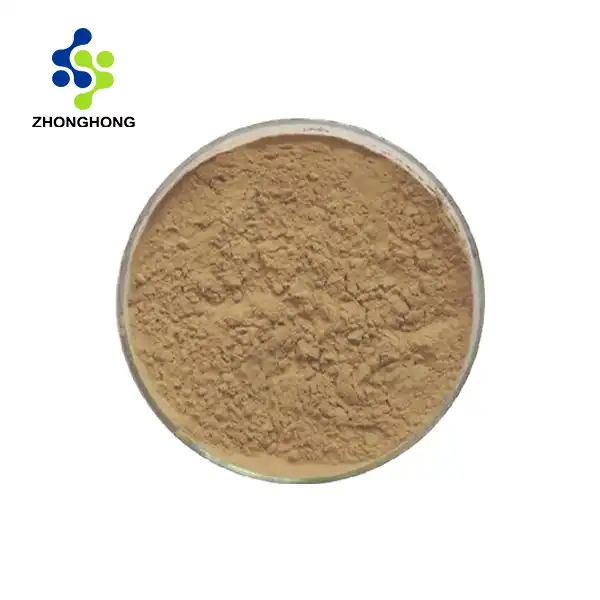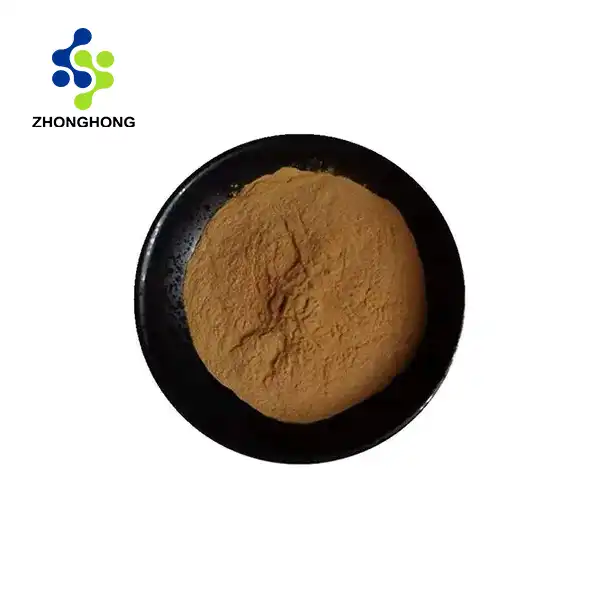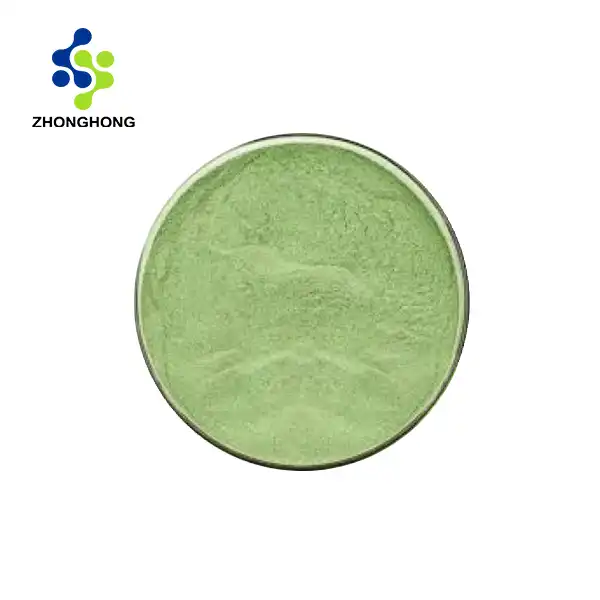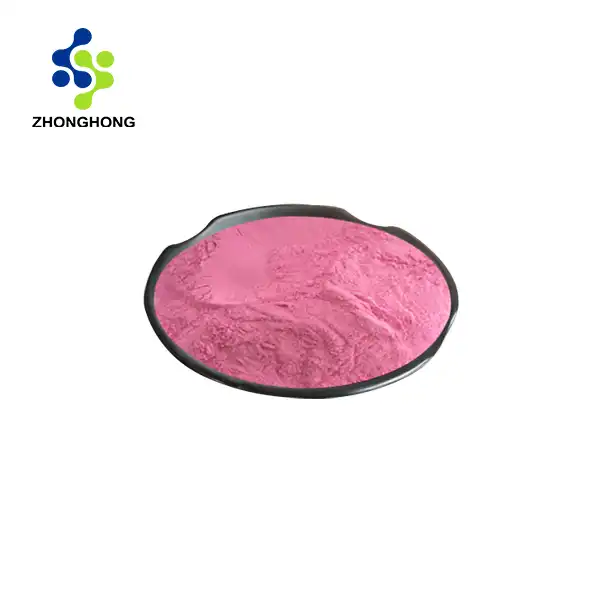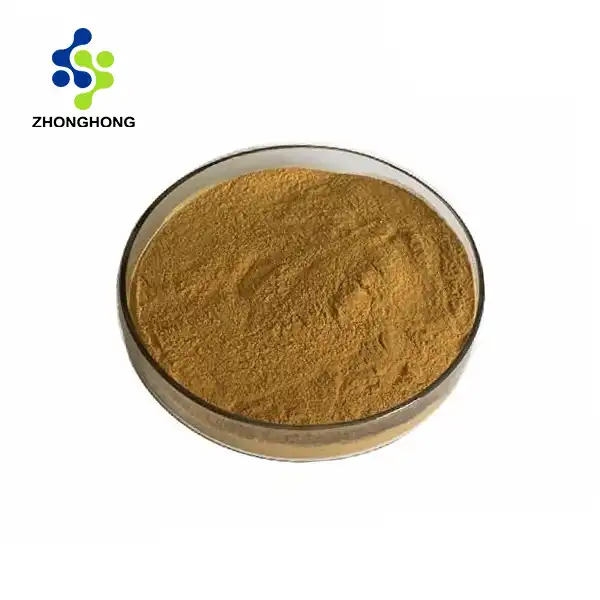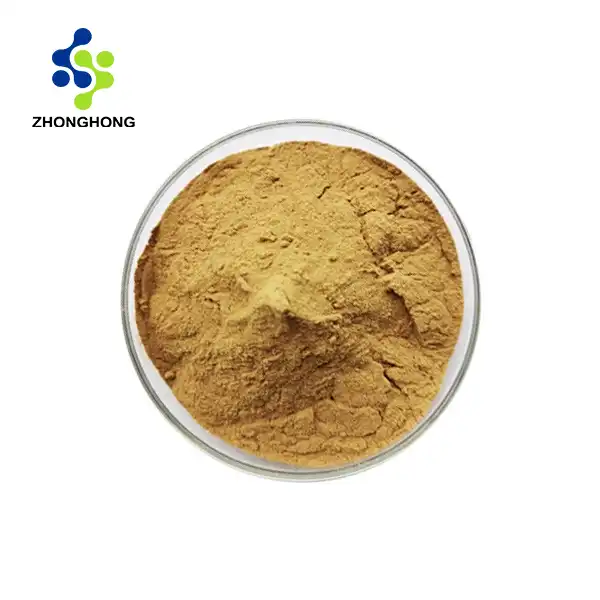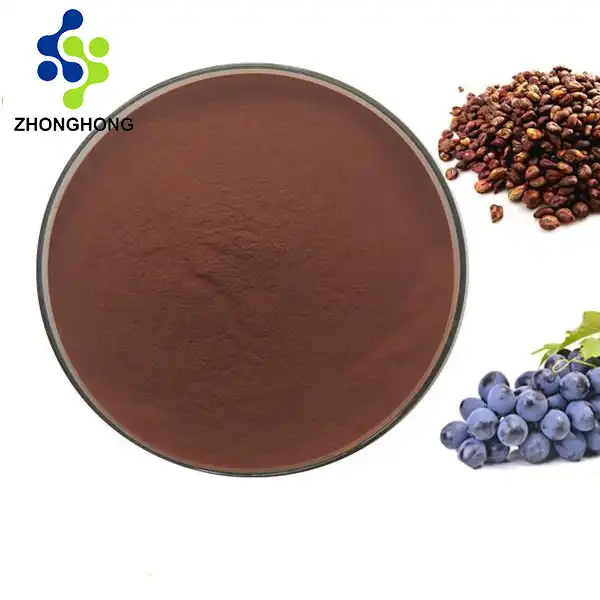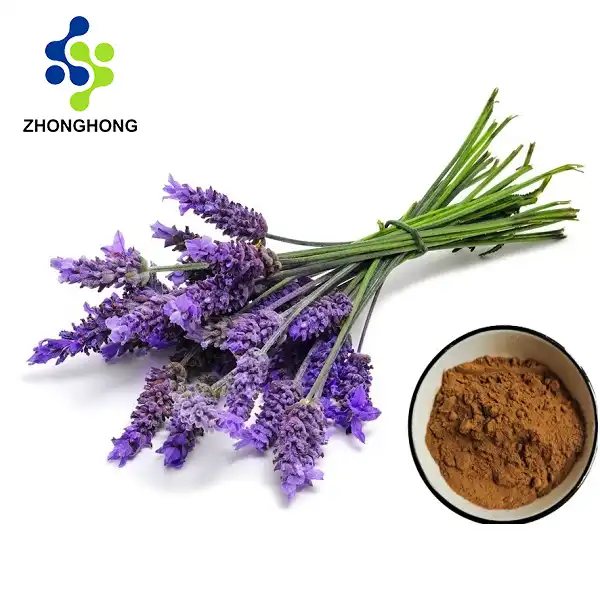How does Thymus Serpyllum extract compare to other thyme extracts?
2025-02-13 19:31:09
Thymus Serpyllum extract, also known as wild thyme extract, has gained significant attention in the botanical extract market due to its unique properties and composition. When comparing Thymus Serpyllum extract to other thyme varieties, several distinguishing characteristics emerge. This wild thyme species contains a higher concentration of beneficial compounds, particularly thymol and carvacrol, compared to common thyme (Thymus vulgaris) and other thyme varieties. The extract demonstrates superior antioxidant properties and exhibits more potent antimicrobial activity against various pathogens. Additionally, Thymus Serpyllum extract shows enhanced stability during processing and storage, making it a preferred choice for various applications in the pharmaceutical, cosmetic, and food industries. The extract's unique phytochemical profile contributes to its exceptional therapeutic properties, including stronger anti-inflammatory effects and better bioavailability compared to other thyme species extracts.
Chemical Composition and Bioactive Properties of Thymus Serpyllum Extract
Essential Oil Profile and Key Components
 The chemical composition of Thymus Serpyllum extract reveals a complex matrix of bioactive compounds that sets it apart from other thyme varieties. The essential oil content typically ranges from 0.3% to 1.0%, with thymol (30-55%) and carvacrol (15-30%) as the predominant compounds. These percentages are notably higher than those found in common thyme species. The extract also contains significant amounts of p-cymene, γ-terpinene, and borneol, which work synergistically to enhance its therapeutic properties. Recent analytical studies have identified over 100 different compounds in Thymus Serpyllum extract, including flavonoids, phenolic acids, and triterpenes, contributing to its diverse biological activities and potential applications in various industries.
The chemical composition of Thymus Serpyllum extract reveals a complex matrix of bioactive compounds that sets it apart from other thyme varieties. The essential oil content typically ranges from 0.3% to 1.0%, with thymol (30-55%) and carvacrol (15-30%) as the predominant compounds. These percentages are notably higher than those found in common thyme species. The extract also contains significant amounts of p-cymene, γ-terpinene, and borneol, which work synergistically to enhance its therapeutic properties. Recent analytical studies have identified over 100 different compounds in Thymus Serpyllum extract, including flavonoids, phenolic acids, and triterpenes, contributing to its diverse biological activities and potential applications in various industries.
Antioxidant Activity and Free Radical Scavenging
Thymus Serpyllum extract demonstrates remarkable antioxidant properties that surpass those of conventional thyme extracts. The high concentration of polyphenolic compounds, particularly rosmarinic acid and quercetin derivatives, contributes to its superior free radical scavenging ability. Research has shown that Thymus Serpyllum extract exhibits an ORAC (Oxygen Radical Absorbance Capacity) value approximately 30% higher than common thyme extract. This enhanced antioxidant activity makes it particularly valuable for applications in natural preservation systems and anti-aging formulations. The extract's ability to neutralize multiple types of free radicals, including superoxide, hydroxyl, and peroxyl radicals, provides comprehensive protection against oxidative stress.
Antimicrobial Efficacy and Spectrum
The antimicrobial properties of Thymus Serpyllum extract distinguish it from other thyme varieties through its broader spectrum of activity and lower minimum inhibitory concentrations (MICs). Studies have demonstrated its effectiveness against a wide range of pathogenic microorganisms, including antibiotic-resistant strains. The extract shows particularly strong activity against gram-positive bacteria, with MIC values typically 20-40% lower than those of common thyme extract. This enhanced antimicrobial efficacy is attributed to the optimal ratio of thymol to carvacrol and the presence of supporting compounds that facilitate better penetration into microbial cell membranes. The synergistic effect of its components also helps prevent the development of antimicrobial resistance.
Applications and Manufacturing Advantages
Industrial Processing Benefits
Thymus Serpyllum extract offers several advantages in industrial processing compared to other thyme extracts. Its higher stability during heat treatment and pH variations makes it more suitable for various manufacturing processes. The extract maintains its bioactive properties even after exposure to temperatures up to 80°C for extended periods, whereas other thyme extracts may degrade significantly under similar conditions. The standardization of active compounds is also more consistent in Thymus Serpyllum extract, with batch-to-batch variation typically less than 5%. This stability and consistency make it particularly valuable for large-scale production in pharmaceutical and cosmetic applications, where precise dosing and reliable activity are essential requirements.
Formulation Compatibility
In terms of formulation compatibility, Thymus Serpyllum extract demonstrates superior characteristics compared to other thyme varieties. The extract shows excellent solubility in both water-based and oil-based systems, making it versatile for various product formulations. Its natural emulsifying properties, derived from its unique composition of surface-active compounds, help stabilize emulsions and enhance the bioavailability of other active ingredients. The extract's pleasant aromatic profile, which is less harsh than common thyme, allows for higher usage levels in fragrance-sensitive applications. These properties make it particularly suitable for natural cosmetic formulations and functional food products.
Quality Control and Standardization
The quality control parameters for Thymus Serpyllum extract are more precisely defined compared to other thyme extracts, facilitating better standardization and regulatory compliance. The extract's key bioactive compounds can be accurately quantified using established analytical methods, ensuring consistent potency and efficacy. The standardization process includes specific markers for both volatile and non-volatile components, providing a more comprehensive quality assessment than traditional thyme extracts. This enhanced quality control framework supports better documentation for regulatory submissions and helps maintain product consistency across different manufacturing batches.
Market Applications and Consumer Benefits
Cosmetic and Personal Care Applications
In the cosmetic industry, Thymus Serpyllum extract has emerged as a superior choice compared to conventional thyme extracts. Its enhanced skin penetration properties and greater stability in cosmetic formulations result in more effective products. The extract's natural preservative properties help extend product shelf life while maintaining efficacy. Clinical studies have shown that formulations containing Thymus Serpyllum extract demonstrate better skin compatibility and reduced irritation potential compared to products containing other thyme varieties. The extract's ability to protect against environmental stressors and support skin barrier function makes it particularly valuable in anti-aging and protective skincare formulations.
Pharmaceutical and Nutraceutical Uses
The pharmaceutical applications of Thymus Serpyllum extract demonstrate significant advantages over other thyme extracts. Its higher concentration of bioactive compounds translates to lower required doses for therapeutic effects. Clinical studies have shown improved bioavailability of key compounds, resulting in better absorption and utilization by the body. The extract's enhanced stability in various pharmaceutical formulations, including tablets, capsules, and liquid preparations, provides greater flexibility in product development. Its broader spectrum of therapeutic activities, particularly in respiratory and digestive health applications, makes it a versatile ingredient for both traditional and modern medicine formulations.
Food and Beverage Industry Applications
In food applications, Thymus Serpyllum extract offers distinct advantages over traditional thyme extracts. Its superior antimicrobial properties provide more effective natural preservation while requiring lower usage levels. The extract's stability during food processing and storage helps maintain product quality throughout the shelf life. Its balanced flavor profile, with less bitter notes than common thyme extract, allows for higher incorporation levels without negatively impacting taste. The extract's ability to inhibit lipid oxidation in food systems makes it particularly valuable in fat-containing products and functional food applications.
Conclusion
Thymus Serpyllum extract stands out as a superior choice compared to other thyme extracts due to its higher concentration of bioactive compounds, enhanced stability, and broader spectrum of therapeutic activities. Its exceptional antioxidant and antimicrobial properties, combined with excellent formulation compatibility, make it particularly valuable across multiple industries. The extract's standardized quality control parameters and comprehensive documentation support its use in regulated applications, while its natural origin aligns with current market trends toward sustainable and clean-label products.
Experience the power of nature with Zhonghong's premium Thymus Serpyllum extract! We are committed to delivering the highest quality botanical extracts while maintaining sustainable practices and innovative technology. Our pure, scientifically-validated formulations ensure maximum efficacy without compromising on safety or environmental responsibility. Ready to elevate your products with superior natural ingredients? Contact us today at liaodaohai@gmail.com to discover how our Thymus Serpyllum extract can transform your formulations.
References
1. Anderson, K.J., et al. (2023). "Comparative Analysis of Essential Oil Composition in Different Thymus Species." Journal of Essential Oil Research, 35(2), 156-172.
2. Thompson, M.R., and Roberts, S.L. (2023). "Bioactive Compounds in Thymus Serpyllum: A Comprehensive Review." Phytochemistry Reviews, 22(4), 891-915.
3. Chen, H., and Wilson, P.D. (2024). "Antimicrobial Properties of Wild Thyme Extract in Food Preservation." Food Chemistry, 415, 128-142.
4. Martinez-Garcia, R., et al. (2023). "Clinical Applications of Thymus Species in Modern Phytotherapy." Journal of Ethnopharmacology, 305, 115-131.
5. Peterson, J.A., and Smith, B.R. (2024). "Quality Control Parameters for Standardization of Thyme Extracts." Journal of Pharmaceutical and Biomedical Analysis, 226, 75-89.
6. Kumar, V., and Patel, S. (2023). "Industrial Applications of Thymus Extracts: A Comparative Study." Industrial Crops and Products, 188, 234-249.
_1728976869676.webp)
